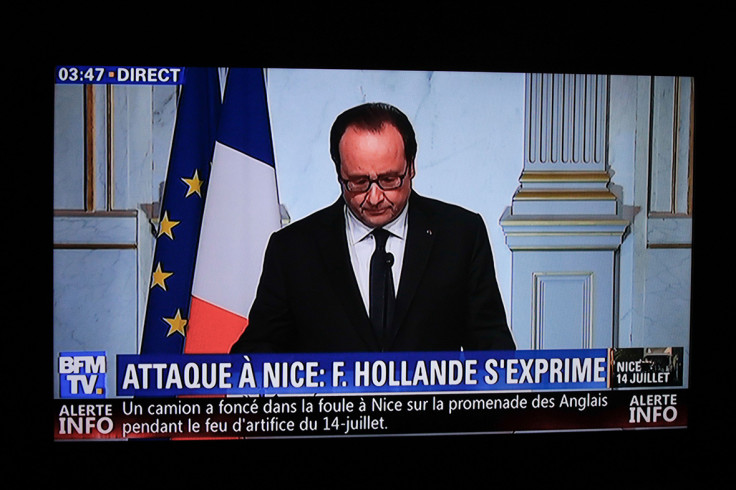Nice attack: Why do terrorists keep attacking France?
Impoverished and isolated communities are ripe recruiting ground for terrorist groups.
The terrorist attack in Nice in which Mohamad Lahouaiej Bouhel drove a truck into a crowd of people gathered for Bastille Day celebrations has left 84 people dead and 202 injured. The attack on 14 July marks the third major terrorist attack in France in less than two years.
The frequency with which France has been targeted has left many people wondering why the country has become such a focus for terrorists. While it is difficult to assess with certainty why terrorists choose specific targets – the reasoning could be as simple as opportunity and means – there are several factors that have made France a target.
First, France is a member of the anti-Islamic State (IS) coalition. While no group has thus far claimed responsibility for the attack in Nice, French participation in the coalition makes it a target for retaliation by IS supporters and the wider salafi-jihadist terrorist movement.
As the Islamic State has come under increased pressure from coalition military efforts in Iraq and Syria, there has been an associated increase in its terrorist activities in other Middle Eastern countries and the West. This is likely the result of the group's need to remain relevant and to offset territorial losses with displays of its global reach.
The Islamic State first identified France as a target in a worldwide message in September 2014, in which it stated "If you can kill a disbelieving American or European – especially the spiteful and filthy French...".
In November 2014, IS released a recruitment video that specifically targeted French Muslims, asking them to carry out attacks in France if they could not travel to IS territories. Since that time IS has continued to target the French Muslim community as a source of recruitment.
Following the November 2015 Paris attacks, France increased its military efforts against IS. In response IS warned of further attacks against France and the West. In recognition of this threat, French President Francois Hollande declared a state of emergency after the Paris attacks, which was set to expire on July 26, but following the attack in Nice it has been extended an additional three months.
Many immigrants live in impoverished suburban banlieues that are insular, ghettoized communities, which further exacerbate their isolation from wider French society. This makes France a potentially ripe recruiting ground for terrorist groups, and provides a disaffected population that could serve as autonomous actors.
Second, tensions have long existed between France's Muslim communities and the wider French state. There are more than five million Muslims living in France, making it one of the largest Muslim populations in Europe. As many as half of French Muslims are thought to be under 24-years-old, an important fact as young people tend to be more susceptible to radicalisation than older adults.
Muslim communities in France have often felt separated from wider French society. This tension became most notable during the 2005 riots in the suburbs around Paris, but has been a long-term problem. Much of the French Muslim community hails from North Africa. The older generation of Muslim immigrants was initially alienated by the sometimes heavy-handed French policies during the Algerian War in the 1950s.
In more recent times, the staunch secularism of the French state has clashed with the traditional practices of immigrant communities. For instance, a 2004 law banned the wearing of religious symbols in schools, including the hijab, or the veil commonly worn by many Muslim women.
In 2010 the French Senate banned the wearing of face coverings in public, including the niqab. These laws have been deemed necessary in order to promote the French values of equality, universalism, and secularism. However, they have left Muslim communities feeling targeted and have made it difficult for these communities to reconcile their religious identities with wider French society.

Further, immigrants in France tend to be more economically disadvantaged than their non-immigrant counterparts. A report by INSEE, France's national statistical agency, indicated that in 2013 the unemployment rate for immigrants in France was nearly 80% higher than that of non-immigrants (17.3% versus 9.7%).
Many immigrants live in impoverished suburban banlieues that are insular, ghettoized communities, which further exacerbate their isolation from wider French society. This makes France a potentially ripe recruiting ground for terrorist groups, and provides a disaffected population that could serve as autonomous actors.
Initial reports indicate that Bouhel was known to police for criminal activity, but was not on a terrorist watch list. While it is too early to say with certainty, this could indicate that the attack was not centrally coordinated by a larger group, but was perhaps a "lone wolf" style attack in which Bouhel acted alone to become radicalized, plan and carry out the attack. This has become a fairly common trait of terrorism in recent years.
The recent mass shooting at a night club Orlando is another example of this type of attack. This type of attack is particularly appealing to autonomous actors and groups alike, as they are easy to plan, inexpensive, and difficult to defend against. Also the fact that such attacks tend to focus on 'soft targets' such as crowds and public events that are often perceived as safe places, make them uniquely successfully at achieving their aim of spreading fear among the population.
Thus, as it becomes more difficult for known groups like the Islamic State to plan and carry out large-scale operations, these types of attacks are unfortunately likely to continue.
Cindy May is a Lecturer in the Defence Studies Department at King's College London
© Copyright IBTimes 2025. All rights reserved.






















